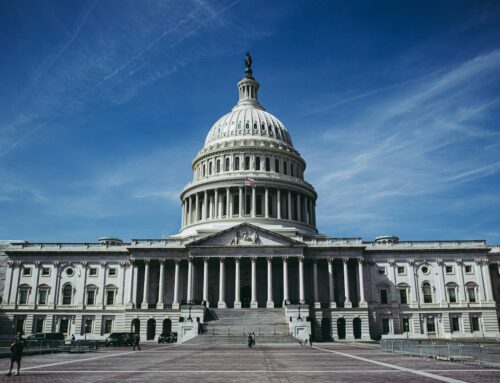When President Bush hands Congress his budget on Monday, he’ll no doubt boast about cutting the fat from domestic programs and urge Congress to be fiscally responsible. But once again, the Administration will leave one of the government’s most expensive efforts — the “Global War on Terror”— off the books. While this accounting trick doesn’t quite rise to the level of an Enron scheme, it’s based on the same premise: Any budget can look good if you leave enough expenses off.
The Fiscal Year 2009 budget released Monday will reportedly include $70 billion in emergency supplemental funds. However, a Pentagon spokesman said that figure is only a “marker” for the full amount that the Administration will ask for in 2009. In other words, it will be just enough to get them through the first quarter — and leave the next Administration to deal with the fiscal hangover.
Congress has demanded that the White House include the full year of war budgets along with its annual request, in part because of past inconsistencies in Defense Department justifications for war funds. This year, the Administration reportedly wanted to leave supplemental requests out altogether, fearing the $103 billon of 2008 war funding still awaiting Congressional approval (most of which was not included in the 2008 budget) would get short shrift. Any complaints from Congress will be countered by Administration reminders of Congressional delays. As taxpayers, however, we have plenty of complaints about the dangers of this hide-the-buck farce.
Of the nearly $700 billion Congress has approved for GWOT activities–including the wars in Iraq and Afghanistan–since 2001, 90 percent have come from “off budget” supplemental emergency spending bills. This is viewed by the Pentagon as free money. Annual war costs have more than doubled in recent years, helped in large measure by a 2006 Pentagon directive that allowed supplemental requests to include anything related to GWOT and equipment lost in combat to be replaced by not-yet-ready-for-primetime weapons still in development. These fiscal feeding frenzies also have a tendency to pick up pork as they roll through Congress – producing war spending with side orders of whiz-bang gadgetry, sugar beet subsidies and ewe lamb replacement.
We have long argued that emergency spending bills should meet the government’s own definition of emergency: sudden, temporary, unforeseen and urgent. After several years, war funding isn’t sudden, temporary or unforeseen, even if it is urgent. But supplementals are attractive because they are not subject to the same caps as other sources of discretionary spending. This means DoD can pile emergency funding on top of their nearly $500 billion regular budget, allowing unnecessary programs and weapons to snowball. Worse, the omission of war costs also allows the White House to produce rosier deficit projections by ignoring a whole column of expenses.
No “emergency” – especially one that is six years old with no end in sight – should allow a government to evade budgeting for the future. The President and the Defense Department aren’t fooling anyone by conducting this war off the balance sheet. They owe it to every American citizen to come clean.











Get Social